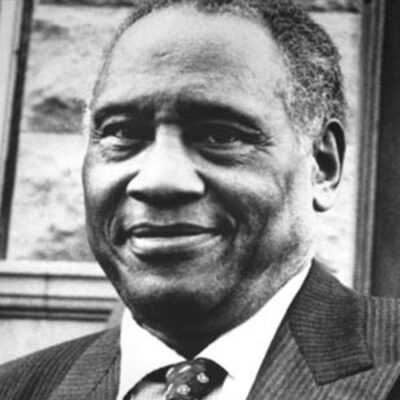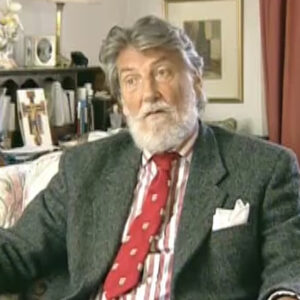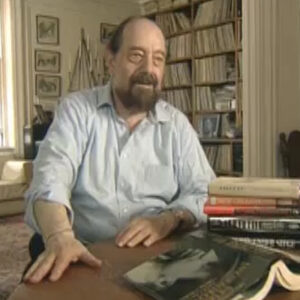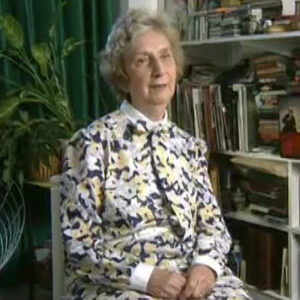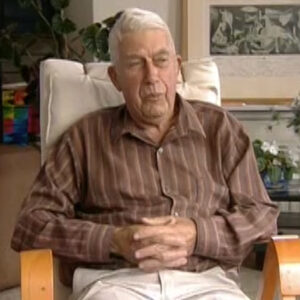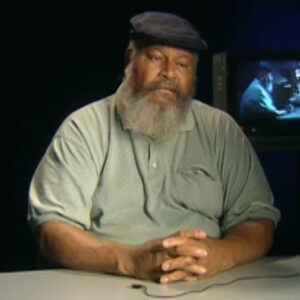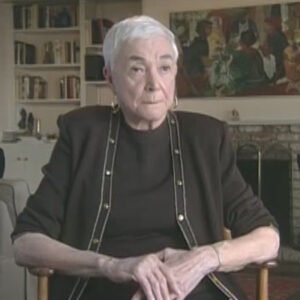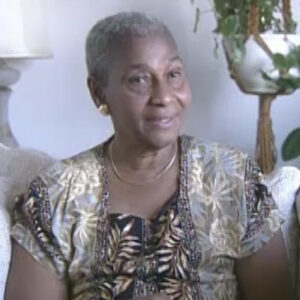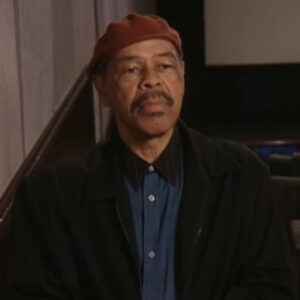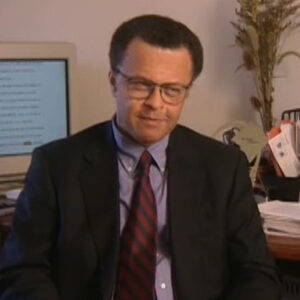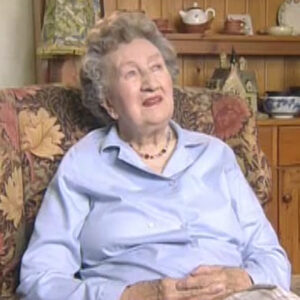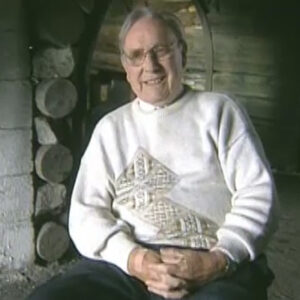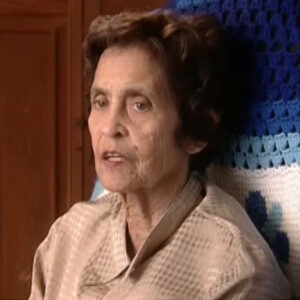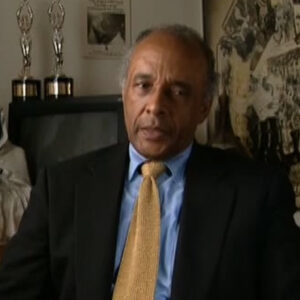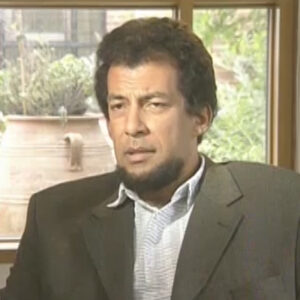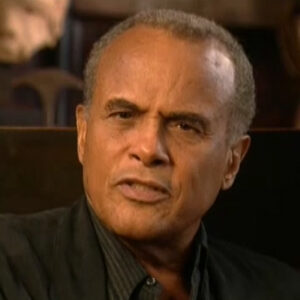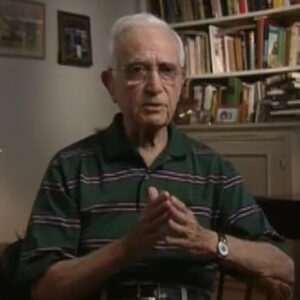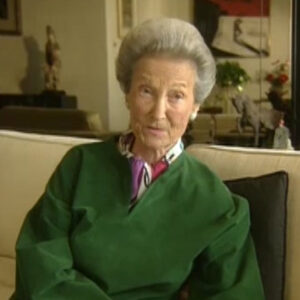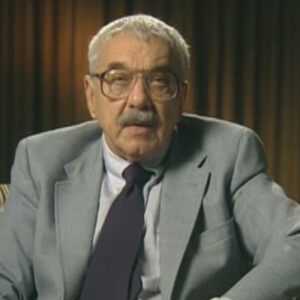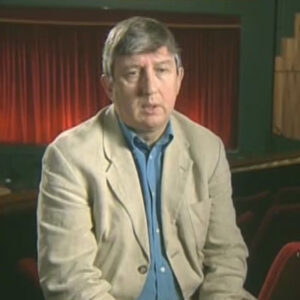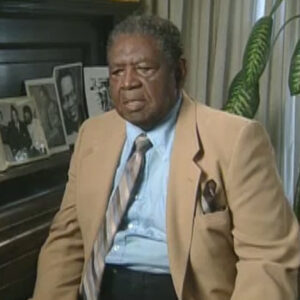Speaker Well, in my family, you practically got into union activities when you were born. I came from a family of labor and scholarly activists so that my actually my first actual participation in the union was as a teacher. In the 1940s, when I after graduating college, I took the examinations and became a teacher and scenography and typewriting in the high schools. It was around the same time that the Rap Khudair Committee started its depredations into the city colleges. And after they got rid of my three brothers who were at city college, two of them as teachers and one as a member of the the clerical staff they took out after me. And finally in 1948, they caught up with me and I lost my job as a teacher. And then at that time, my brother fell, was working on a history of the fur leather workers union. He recommended me to the leaders of the union as educational director. And so my I took the position of educational director of the Fur and Leather Workers Joint Board. In that capacity, I had again opportunities to meet Paul Robeson because he had a close relationship with our union, and particularly in 1949, he was invited to sing at our resort.
Speaker OK, well, it was sold off more than.
Speaker Basically, what do you see during one of the first time you heard of Paul Wellstone? I mean, was that not Newman heard of him?
Speaker I think I first heard of Paul Robeson in the 1930s. We had an orchestra in our family. And so that we were familiar with music and anybody familiar with music in the 30s had to know about Paul Robeson. We had an orchestra in your family. Yes. We had to call the phone, the orchestra. And when my brothers were suspended from city college, Leonard Lyons, who was a columnist for The New York Post, gave us the name of the Foner brothers and they suspended Swing. And that stood until the end of World War Two. Yes, we had an orchestra in that capacity. We we had a lot of contact with cultural experience. And but it was in the labor movement that I really got to know Robeson better and to appreciate more about the role that he was playing in the life of our country.
Speaker What what generally and. That’s next door. That’s Cutforth. Good stuff. OK, so now given the. How significant do you think the role of labor, the one that Paul Wellstone associated with, how significant was the role of labor in the life of people of the city, let’s say 20s and 30s, when when Rosa was coming along in the 20s?
Speaker Well, in the 20s, I don’t from what I can, I remember. And no, I don’t think that the relationship of Rabson with the labor movement was of great significance. I associated with the reverse.
Speaker I don’t know the ropes and so much. I want to know what was the real impact of labor on quality of life in New York?
Speaker OK. The the quality of the impact of labor on the quality of life in New York, I think took a dramatic change with the development of the CIO and that is in the mid 30s and thereafter before that in the 1920s and going into the 30s. And the role of the Favelle was almost negligent in the in the life of the city, as it was pretty much in the life of the country. It was actually the the growth of the CIO and the reaching out of the CIO to millions of unorganized workers. And that reflected itself in New York City as well, where the CIO council played a really significant role in the life of the city politically, socially, economically, in every respect. So that I think that the the impact of labor in the city is distinctly related to the growth of the CIO.
Speaker Now.
Speaker Paul Robeson come along if it becomes a cultural celebrity recently, how did he how did he and Labor get connected? Basically.
Speaker I think that from what I can judge, Paul began to see the labor movement as a very significant, a very significant participant in the struggle for against discrimination in America, and that particularly reflected itself in the role that he played when the CIA was organizing the unorganized, for example, in the Ford campaign. We knew in the labor movement that Robeson played a very important role in the. We knew we knew in the labor movement that Robeson played a very important role in the Ford campaign and the Ford Workers Union, Local 600 of the UAW utilize that role. I had occasion recently because I was preparing a study guide for The New York Times on Paul Robeson to go back into the files of the UAW and the CEO. And I came upon this article interviewing Rabson at the time of the organization of the Ford workers and particularly the appeal that he made to the Ford workers. And he did this, incidentally, not just in writing. And I’ve seen a picture of him speaking in Cadillac Square at a had a giant rally of the UAW in Detroit in which he appealed to black workers to join the CIO and said that this was a this was the means by which they could break through the the shackles of discrimination and try to find a part of economic life in this country.
Speaker Hmm. Do you do you think that he could you could you discuss Wilson’s view about the importance of integrating unions and bringing about equal rights and justice, you know?
Speaker Yeah, well, he was very he was very explicit about that and his writings and freedom, the newspaper that was coming about at the time that I was with the union and in every speech that I heard him make, he spoke about particularly about the the need for integrating unions and for the the fact that he emphasized the fact that the unions couldn’t play their rightful role in the country unless they became the kind of organization that represented all of the workers. And in that case and that time and that specific time, it meant organizing black workers.
Speaker And that’s OK. Let me ask you this. He did a lot of his, uh. Songs. An appeal to both middle class and working class white Americans.
Speaker But but he really in labor deals with labor. He really emphasized that the working class was seems to be more important than the middle class. Can you kind of talk about.
Speaker Yes. He made clear on every occasion that I heard him speak, he he spoke particularly about the role that workers could play hand in hand with the black people in bringing about the kind of America that he vision and vision.
Speaker And I remember also the fact that when he took it, when he in one occasion when he took a leave from doing concerts, he announced specifically that from now on I will only speak if I’m I found invited to by unions. He did that, incidentally, in Salt Lake City, not far from where Joe Hill was executed. So there was a kind of a poetic justice in that. But on every occasion that I heard him speak, whether in small groups, large groups or in Cadillac Square, he always emphasized this need for unity between the black people and the unions and the and it was a kind of a mutual kind of respect.
Speaker Neither, he felt, could advance without the help of the other. And I think history has brought him out.
Speaker OK, now you’ve been involved in this all your life so, so candidly and critically houses. I mean, that’s what he said. To what extent do you think that’s been successful and what have been the failures but the setbacks?
Speaker Well, I think that during the period when the period that I was particularly involved in in the 40s and late 30s and the 40s, it was successful. It was successful during the period when the CEO was in its when it was developing and organizing and it stopped being successful at the time when the CIO became an instrument in the Cold War and began to embark on a policy of getting rid of those unions that disagreed with the policy, the CIO on political issues, and use it as a means of of cleaning house in the union and rid themselves of precisely those unions that had been playing this leading role. The most dramatic example that I remember was the food and tobacco workers in North Carolina. Robeson was very closely associated because of the roots of his family in North Carolina. But I remember that Miranda Smith, this remarkable black woman leader of the food and tobacco workers at that time, was coming forward as the leader of the the workers in that area. I know that Robeson had a very warm relationship with her when the CEO decided to embark on its Cold War policy of getting rid of what they called the left wing unions. They they announced that they were still going to organize Operation Dixie and they were cleared of all of these reds. They were going to go and organize the south when that came about. They particularly banned people for like Miranda Smith for playing a role in this organization campaign. And it was people like Miranda Smith that could have made it work. The result was that the Operation Dixie was a fiasco. The CIO never organized the workers of the South. And in many other respects, this division of the labor movement that came from this Cold War policy had a disastrous effect on labor. And I am convinced that it really played a role in diminishing the the the contributions that Labor could make. And right up through the Vietnam War, the relationship between the the labor movement and the movements for social justice were completely crippled. And and I think that Rosen’s vision of a of unity between the the labor movement and the black workers and of opening the door of the labor movement to people of all political persuasions and refusing to participate in red baiting was a major contribution that he made. And I think life has justified in.
Speaker Chark.
Speaker So there’s been a I mean, it’s pretty clear I don’t have to be a visionary, but there was there was a real relationship, a unique relationship between certain unions and and we talk about the union and votes.
Speaker And through the years, I mean, how did it start? And especially how did they come to be his bodyguards at this point?
Speaker Mm hmm. Well, the union the fur union at that time had the reputation of being a union that was clearly in the camp of the left. The president of the union, Ben Gold, was the only acknowledged communist in the leadership.
Speaker That said, I think it’s the dog, the dog or the car.
Speaker You know, the.
Speaker All right, let’s try this, OK, the foreign leather workers union was known throughout the labor movement as a union that was very closely associated with the left and specifically Ben Gold, who was the president of the union, was a member of the Communist Party. And so stated the result. The result was that the union’s efforts to organize within the fur and leather industries were always keyed on the kind of black white unity that that was part of the program of the left at that time. I think that it was when Robeson had an opportunity to see that in the far workers union, for example, a local law that was made up largely of Italian workers at the time of the Italo Ethiopian war in 1935, elected a black man. Lindon Henry has the business agent, and there’s no other type of union where this would have been possible. So at that, I think at that time, even before I came into the union, which was in 1948, I and my knowledge of the history of the union taught me that that arose and recognized the role that the union was playing in the fight for civil rights. The fact that we initiated the Negro History Week in the in the labor movement and elsewhere. And I think he appreciated that. And as a result, there was a warm relationship between him and the union. And the result was that the first opportunity that the union made him an honorary member of the union. And it’s one of the pictures that I’m very proud of and that we ran in our union newspaper of Robeson receiving this honorary membership from Irving Potash, who was a leader of the union at that time. So my my distinct recollection is that ropes and recognized those unions that were that were true to the to the aim of the CEO of organizing the unorganized. And he recognized that largely this was in the in the ranks of the left, that it was more fully carried out.
Speaker Did you ever hear of any criticism by, let’s say, more central or centrist minded black leaders?
Speaker You know, people, some of whom, you know, I mean, there’s always that tension, but you have sort of black middle class.
Speaker And the NAACP during that time, were you aware of any kind of tension when you were in the midst of that, like in the 40s, mostly after the after World War Two, during the period of the of the New Deal period when Robeson was very closely associated with the New Deal and again, with the growth in births, with the birth and growth of the CIO, you didn’t see evidences of this kind of tension between the, let’s say, the leaders of the NAACP and Robeson. But in the post-war period, when the Cold War begins to take root, you then begin to see people like in the NAACP distancing themselves from roles from Robeson. And when the attacks had him reach their their height, which I think is 1949, when Peoria he’s almost comes close to being lynched. And then, of course, when Peekskill, there was a tendency of the of the civil rights leaders of the established civil rights organizations to distance themselves and to say to say, well, he’s not speaking for black Americans. He’s speaking for a particular point of view. So, yes, I I associate that very much as a feature of the Cold War.
Speaker How did the way the white left react to it and where the conversations with Black left in such a dialogue?
Speaker I mean. Well, yeah. All right. Well, the what I would associate with the black left in the labor movement would be the National Negro Labor Council. At that time, I remember Coleman Young was one of the leading figures in the NLC. So when with the with organizations like the National Negro Labor Council, the relations with the left were warm and fraternal with the NAACP and organizations like the Urban League, I think that the relationship between the White Left and these organizations was similar to the relationship of Robeson with them. I think that they did not want to be associated with the left. And in hindsight, I think they were wrong and well, in hindsight, they admit they were wrong.
Speaker OK, well, there we have an agreement and, um, where the other unions that that was I was close with.
Speaker Yes, I remember particularly the National Maritime Union during its period of development, that he was very closely associated with the the UAW when the organization, particularly the organization of Ford, but even other organizational drives of the of the CIO, the the Longshore Union on the West Coast, the marine cooks and stewards, the United Public Workers, that was the union that the teachers union was a part of. His relationship with the teachers union in New York was a a mutual and warm relationship. I was a member of the union and the directly post-war years, 46, 47, 48, and we used to have our annual conferences and it was a major force in the educational system ropes and came at least on two occasions that I remember to speak at these conferences. And of course, and sing, of course. And these were like 3500 teachers would come on a Saturday tour to the Hotel Commodore for a day of sessions on a whole variety of subjects. And then, of course, we’d have our our our luncheon afterwards and and the guests of honor would be there. And on one occasion, it was Robeson. On another occasion it was Dr. Dubois. But the the commitment of the teachers union to the struggle for for equality in education was one that I think Robeson recognized and felt a very, very strong bond with.
Speaker And is when a celebrity like Rosen supports you.
Speaker What does that how does that play out in real terms and what did he do?
Speaker Well, it plays out in terms of the fact that when you have a picket line and you have a strike, the celebrity like ropes and shows up on the at the strike, he shows up on the picket line. When you have a when you have an affair to raise funds for the relief of the strikers ropes and shows up to sing the affair. When he sings in the in a steelworkers town, for example, he tells it, he told this remarkable story that I remember hearing about how the steel, the steel employers were were honoring him. And so in order to make sure that he he played the role that he could in the community and on the Saturday night, he sang for the for the steel employers and their friends. And on Sunday morning, he appeared on the picket line with the with the strikers and showed his support for that. And there are there are a hundred ways in which he demonstrated that he felt close to workers. And I must tell you that I was around to see that the workers felt equally close to him. There was a tremendous it was it was a mutual love affair between working people and poor and white and black workers. I was at conventions in some cases as a guest, in some cases as a participant where where he would be invited to speak.
Speaker And these these delegates were not because they were workers who came out of the shops and they had this tremendous feeling of warmth for him and the feeling that not only was he a great artist, but that he was an artist who associated with their problems and that they could depend on him. And there wasn’t a single struggle that I remember, whether it was the communication workers and in Western Union or whether it was a steelworkers, there was not a single strike or important struggle that took place during these years that I was part of the labor movement where Robeson did not actively participate on the side of the workers. And that has an influence, there’s no question about that. So that I would characterize it as a mutual love affair between Paul Robeson and the and the American working class, black and white.
Speaker OK, how does this flip that around? How did the unions so I mean, any kind of support and especially, let’s say, over the passport issue? I mean, I guess the question is, was there ever a time that they backed off from him?
Speaker Yes, there was a time that they backed off from him. And I and I would associated it again with the period of the Cold War that when when the the government started what was clearly a well thought out and motivated campaign to discredit ropes and the those unions that felt that they wanted to play ball with the powers that be dissociated themselves. For example, in the National Maritime Union, where Robeson had played a very important role with leaders like Ferdinand Smith, black leaders, and with whom Robeson had a very warm relationship, when when Curran decided the head of the union decided that he wanted to side with the CIO leadership and its anti-communist campaign, the relationship between the leadership and and ropes and called.
Speaker And no longer would Robeson be invited to speak or sing at an informal meeting. Similarly with the UAW and the leadership of the UAW, which was very much a part of the leadership. The CEO decided that it no longer was no longer.
Speaker Feasible to continue a united relationship of all political forces within the union, they that was reflected also in their attitude toward Rabson, although I must tell you then, local 600, which was the Ford local, the relationship between Ropes and the union remained very warm, despite of the despite the position of the international. And I can remember periods when the international union was hostile to ropes and about 600 local 600 would still invite him and still contribute and still get subscriptions to his newspaper when other parts of the CIA were told to hands off. And the same thing was true. And other unions where Robeson had had been helpful to the union when the Cold War came into real effect and the unions had to make a choice between challenging it or going along with it, many of them took the position of going along with it during the same period. You see the left unions that had been very close to ropes and many of them were expelled from the CIO and were were were then then became the the butt of rating. One of the things that happened during this period, incidentally, is that after 11 unions were expelled from the CIO in 1948 and 49, the remaining unions began a work with what can only be called as a scavenging campaign to try to get the workers from those unions into their own. And so that at least as far as they were concerned, they were not anymore going to be associated with the kind of policies that ropes and felt were important. It’s very interesting to note that one of the key one of the most important. Events that took place during this period was in 1947, there was a law passed called the Taft Hartley Law, which since 1947 has been a source of really crippling the labor movement. It has been. It was the the law that was used to prevent solidarity of workers from one union to another in 1946. It’s not known to much. There were seven general strikes in this country. How a general strike takes a lot of doing. It requires the workers either in a complete locality or in a complete industry to walk out together. So there’s a lot of solidarity involved. One of the main reasons for the passage of Taft Hartley was to make it impossible for that to happen again. And it’s interesting to note that there hasn’t been a general strike since 1946. Taft Hartley made it illegal for one union to support another. It’s called a secondary boycott so that if you’re on strike and another union says Will Will will honor your picket line, the the company can go to a judge and get an injunction. That’s a violation of secondary boycott. Now, you might say, why didn’t the labor movement fight this? Well, the Taft Hartley law also had a provision that the leaders of a union who wanted to participate in an NLRB National Labor Relations Board election had to sign a noncommunist affidavit. At the beginning, the leaders of the CIA said, no, we aren’t going to sign it. But then they began to see, hey, maybe we can use this in order to raid the left unions. So very quickly, the opposition to the noncommunist affidavit began to disappear. The result was that the the the the unions that would not sign the Taft Hartley affidavit were, in fact, barred from participating in NLRB elections. That’s used as a means of raiding one union upon another. And that’s a terrible thing in the labor movement when unions rate each other because it means that instead of concentrating their activities against employers, they’re concentrating their activities against other workers. In that respect, the period after the passage of Taft Hartley was a period of great disaster for the labor movement. It was on the defensive year after year. The Taft Hartley also authorized the right to work laws. Taft Hartley said that a state could pass a law that they called it right to work, which meant that it was illegal to sign a contract with a union that provided for a union shop. So that you have states still have states in the union where you can sign a union contract. Well, all of this is a is a heritage of Taft Hartley. And I am convinced and I think history will show it, that the failure of labor to actively fight against Taft Hartley was the cause of a whole era during the labor, which the labor movement was weakened. And its only and I think in the last few years, with the birth of a new leadership in the AFL-CIO, that you begin to see some of the old organizing spirit coming back.
Speaker And I think that Robeson was associated with that organizing spirit so that when you talk to him and, you know, what was his reaction when the unions, some of the unions backed off of him?
Speaker Did he feel betrayed and did he say anything?
Speaker Well, his reaction was one of sadness. I remember being part of meetings where he talked about the Namu, for example, and he felt sad about the fact that the the leadership of the union was no longer not that hard, not not that it was turning its back on him. Yes, that was. But more important, that was turning its back on the kind of policies that had led to the to the growth and development. And it’s no accident that years later Curran was, was condemned for misuse of funds. And at all of the things that you associate with the parkade unionism. So Robeson and during this whole period of the the Cold War period during which I had an opportunity to watch him at meetings and at concerts and all kinds of gatherings, his he he, of course, felt terrible about the fact that his relationship with these organizations was no longer what it was.
Speaker But I think there was an understanding on his part that the road that they were going on was a road that was disastrous not only for them, but for black people and white people in the country. And I think life has demonstrated that.
Speaker Can you tell me more about his involvement with the National Labor Council? I mean, who were they? And you know what?
Speaker Why was there a need for that? I mean, I don’t.
Speaker Oh, OK. Yeah, well, the the reason.
Speaker The reason there was a need for a national Negro Labor Council was the same reason that A. Philip Randolph had to get up at convention after convention and ask that there should be a resolution attached to whatever resolution that they were adopting, calling for an end to segregation in the unions. You’ve got to realize that during this period, there were tens of unions that had white only clauses in their in their constitutions. And and Randolph would constantly get up and played at the conventions to to change that and to make it illegal for a union to have this. And of course, he would be voted down. And there was one very dramatic convention where many turned to him on the platform and said, who appointed you? The spokesperson for the he didn’t say spokesperson. I say that from a non-sexist point of view, but he said, who appointed who appointed you as a spokesman for the black people in this country? And of course, Randolph was much closer to being a spokesman for the black people. Well, Randolph was the one who was associated with the growth of the National Negro Labor Council. And he, together with Cleveland Robinson, who at that time was a leader of District 65, and Coleman Young, there were a number of of of black leaders that came together with convinced that the only way that black people were going to get a fair share, a fair shake, was that they had to organize and put pressure on the unions to see to it that one that they organize black workers, too, that black workers in the union were treated fairly. Three, that there was some representation of black workers in the leadership of the union. That was basically the role that the National Negro Labor Council. It’s interesting that that took place relatively early. The National Negro Labor Council came into existence, I think, around 50, 51. The the organization, the organization to bring women into the leadership of the union took a hell of a lot longer of it.
Speaker OK, for good little sound.
Speaker The National Negro Labor Council, to my mind, came into being because there was a growing recognition on the part of all black leaders in the in the movement, and there weren’t too many at that time, but particularly Randolph, who really became associated as the leader of of of blacks in the organized AFL-CIO.
Speaker It came into being because they became aware that unless there was such an organization of both rank and file and leading black leading trade unionists, that unless pressure was put on the leadership of the unions and the leadership of the AFL-CIO particularly, it was going to be impossible to get change. And this was a result of convention after the convention where attempts were made to to ban segregation from the unions. But these unions were not about to do it. That’s basically the role that the and the National Negro Labor Council played.
Speaker What was what was then connected in this effort to join them?
Speaker Well, Robeson was was associated with that effort. Yes, because I remember, for example, that in the 1952 convention of our international union, that’s the Fur and Leather Workers Convention in Chicago, and that Coleman Young came to the convention and spoke and thereafter, very shortly thereafter, became an organizer, was hired by the union as an organizer in the Foreign Leather Workers Union. That’s why Coleman Young’s relationship, when he was mayor with our union, was a very close relationship. But Robeson, I know, was associated wherever possible with the with the National Negro Labor Council that it’s true that there were some tensions because Randolph A.. Philip Randolph did have some some concern about bringing having an organization that was too much associated with the left. On the other hand, Randolph had no hesitation about bringing people like Cleveland Robinson into the leadership of and an Elsie and Robinson was associated with the Union District 65. That was clearly a part of the left. So that my recollection was that wherever possible, Robeson did play a role in helping the National Negro Labor Council.
Speaker But I mean, they had a minds, right?
Speaker Yeah, they had a demise. Again, I think as a as a result of the Cold War and the anti red.
Speaker But I think their influence was felt because when when there was a rebirth of effort in the in the later period of post Vietnam to try to continue to fight for democratization in the unions or an organization like the Coalition of Black Trade Unionists came into existence, which was really a continuation of the role that the NLC played. And the CB2, the Coalition of Black Trade Unions, continue the fight for to bring black blacks into leadership and those unions where they were unable to to become leaders and also to strengthen the fight to organize the unorganized black workers. And so that’s an ongoing thread that that runs through. And I think the the NEA, the National Negro Labor Council is an important aspect of that. And I think that Robeson’s role in the entire period was one that helped to lay the groundwork for the organizational work that came later and still is not completed, OK, and so on.
Speaker So now what’s the situation now with your analysis of how it is now?
Speaker Well, I mean, obviously, those organizations.
Speaker Well, I think it’s today it’s impossible for an organization, for any international union to have a white only clause. We have come that far.
Speaker But there are still there are still organizations, labor organizations, unions that are hesitant about allowing blacks and women and Hispanics a role in the leadership. And there still is a need for Sebti, U.S. and coalition of labor union women and Hispanic Hispanics. All of these organizations came about because there was a need to bring about greater representation in the ranks of the union. And I associate ropes and very much with that struggle.
Speaker Yeah, I think it seems in my reading that you tell me, uh, I want to know a little bit more about Peekskill, because that’s the one, uh. Why did your union sort of become the guardians of robots and I mean, I know you had a relationship, but they literally how did it happen?
Speaker Well.
Speaker But by by the time of Peekskill, Robertson was already an honorary member of the union. That’s one thing, but that doesn’t tell it all.
Speaker The leadership of the fur workers were very much a part of the struggle that was going on within the labor movement at that time. As to what policy you played in the in the Cold War and in the political life of the country, the the the leadership of the foreign leather workers and 65 and a number of other progressive unions as well, saw Peekskill and the attack on ropes and as an attack on not only civil rights and civil liberties in the country, but a direct attack on labor because they associated ropes and so much with the struggles that they that they were conducting on behalf of workers when that first concert took place. And and how Howard fast, I think you may have interviewed, could have told probably told you about the first concert where he was invited. Robeson was invited, which never took place, and where they were a band of vigilantes prevented the concert from taking place. After that took place, there were a number of meetings in the city of civil rights organizations, but also of union people. And in our union, one of the leaders, a young man named Leon Strauss, then a young man, played a leading role in bringing together the District 65. The Drug Workers Union at that time, which was a very small present hospital union, was then the drug workers union and the furniture workers, a number of other progressive unions. And we met and decided how we were best going to guarantee that since Robeson announced that he was coming back to Peekskill the following Sunday, we met to see how we could guarantee that that concert should take place, plus the to guarantee the safety of Robeson. And in this respect, the veterans of World War Two, who were very prominent in the number of the unions, played the key role. The veterans met separately and said that they would undertake to see to it that Robeson was protected and that the concert took place. And when you look at the at the protection around ropes and on the speaking platform, you’ll see that a lot of them are wearing their army hats. So to identify them as veterans. And there was about 12 or 1500 veterans who removed the entire the entire concert area and played a very important role in protecting Robeson and and and also calling attention of the people after the concert. The concert itself ran very smoothly. It was a beautiful concert and there were about 25000 people there who came up to Peekskill. But the the state troopers had arranged that in order to get out, there was one narrow road leading out of the concert and you had to literally run a gauntlet because stationed along that road, where were people with rocks and with all kinds of missiles that they were prepared to throw. And in my case, for example, I undertook to drive. You were near who was a prominent black trade union leader to drive him out with my wife and the other people in the car. Well, some of the people along standing alongside Mr. Quinn here for Robeson so that the cry went up. There’s ropes. And so they went after our car. We got out all right. But others were not so lucky. And there’s a story in the far worker, an interview with a man by the name of Sid Marcus, who lost his eye as a result of the being seated in the bus in which a rock came through the bus and and as a result of which he lost his eye. So there were there were people, many people who were hurt as a result of it. And of course, we were aware of the fact that the the state troopers played no role whatsoever in protecting. And there are pictures showing that there are pictures showing them standing as people are throwing throwing rocks at it. So it was it was a really a major event. And in both in the effort to silence Robeson, I think in many respects an effort to kill him and in the in the the fight for for civil liberties in the country. And it was 49, I think was the low period. Incidentally, while I was doing my research for the this study guide that I did for The New York Times, I came across the story about Peoria. Peoria had taken place earlier in 1949. He was. Robeson was. Scheduled to give a concert in Peoria, had been invited by the mayor and by major organizations. Well, there was there was a tremendous outcry among the vigilante’s in Peoria and Max Yarragon, who was at that time writing for people’s voice. People’s Voice was a newspaper that was published in Harlem by Adam Clayton Powell. Yergin wrote, There was murder in their hearts. That was the headline of the story that he wrote. And he was there. He was he went to Peoria to accompany Robeson. And it was quite clear in his mind that there was a Lynch party out to get ropes. And in Peoria, that’s like three or four months before Peekskill. So the already in the air was this notion that with the help of the government, you would do everything you had to do in order to prevent Robeson from being heard and. The history of our country for those years is a sad one, an attempt to to put into non personhood, and that’s the only way you can characterize it. A person who had demonstrated that he was literally one of the heroes of our country, a great artistic, sports, cultural, political in every respect, remarkable figure.
Speaker And here was here was a situation where beginning in the 1940s, there was a distinct effort to wipe his name out to the extent that in Rutgers University, they took his they took his picture out of the out of the picture of the football team. That’s the only 10 person football team that’s, I think, in history. But it’s sad because the the I can imagine that if life had been different and if Robeson with Robeson could not continue to flourish without a a life in the country of freedom and democracy, but it would have been a great thing if if during this period Robeson could have continued to play the role that he did.
Speaker And instead he was a victim of one of the terrible tragedies of our country.
Speaker React to this statement saying, I’m trying to get a sense of what you might have heard as an active participant in this movement. Well, Robeson was just a pawn used by these white lefties to get their message across. He was used.
Speaker Yes, I would say I would say that the progressive labor movement was appalled that Rosa was using to get him.
Speaker No, I’m being sarcastic, but I think I’ve said earlier that I think that there was a mutual respect that Robeson had with the progressive, what I would consider the progressive left trade union. And I think that they recognized not only that he was a great a great artist and a great cultural figure, but they recognized that he had an understanding of their problems that was very rare in either cultural or political life. And so that and he, on the other hand, felt that it was only through the unions that brought blacks and whites together and workers. And he always places emphasis on the key role that workers played in the development of a true democratic movement. I think that that if you want to use the term that each was using the other, maybe you can. But there was a mutual feeling of respect. And certainly Paul Robeson was not going to be the pawn of anybody. I can’t visualize anybody using Robeson as a pawn for anything with this. This was a man who could not be manipulated by anybody, no matter what the stakes were to you on a personal level.
Speaker Was he what was he like when he relaxed? I mean, funny, OK?
Speaker Yes, I had I had a unique opportunity to observe him relaxing because in 1949, the same year that Peekskill took place, Robeson was invited to come up to the fur workers resort.
Speaker That was a summer resort. Well, all year round resort. It was a resort that our union had purchased at White Lake, New York, for the use of the workers. And during the summer, we had a very active cultural program. People like Pete Seeger came and other Belafonte, other other performers. And we invited Robeson to come up for a to give a concert at the one weekend. And I undertook to write a script that we used in order to to welcome him when he came. And I have that script and I have one of the proudest things I have in my life is the inscription that Rosen wrote on it saying, thanks a million, Paul. But after the concert, it was, of course, a tremendous success. But everybody felt that since he was up in the Catskills, there were so many other resorts that wanted to hear him that we arranged. And the the both the day in which he was singing it at the four workers and the day after for him to visit other resorts, Chester Zomba and Woodburn. And there were other places that were progressive up in the mountains at that time. And I had the the the fortunate chore of driving him to these places. But there then he could relax. And what was it like? Well, he was a he was a warm, warm, humorous person who saw the humor in situations. And and when he relaxed, he talked about the things that were he would he would comment, for example, at the concert. Well, he was very complimentary about the fact that I had written this thing and he liked it. But he would comment on on on the summer resorts, on the Catskills, just the things that would what occurred to him. And much like the boys, incidentally, when the boys came up to White Lake and I also had an opportunity to drive him, had had a similar type of reaction when he could relax and be humorous. And and both of them had very warm senses of humor as as Robeson did so that it was not as self-important, the thing that you were driving this celebrity around, but rather that you were driving a a very warm and and compassionate human being cut.
Speaker OK, so you can answer this question first.
Speaker All right, well, what one aspect of this question, and I think that you have to divide it into certain periods, for example, during the period of World War Two, when Robeson would appear at at union gatherings, he would he would always relate the common bond of the the Soviet people with the people of the United States in the war against fascism. And so that during this period, it was very, very difficult to argue with him, that literally the fate of our country hung in the balance as to whether the Stalingrad was going to be the the victory or defeat for fascism. So there was a general recognition among everybody, NAACP or anyone, that the fate of the country rested with the continuation of the unity that existed between the United States and the Soviet Union during World War Two, after World War Two, when the Cold War takes begins to take place. The revelations about about from Khrushchev come relatively late. Remember, they come in 1956. It’s during the period of the 1947 48 49 ropes and would not join in the condemnation of the Soviet Union. And remember, at that time, he was not being invited to to widely by by by unions, because that was the period in which unions, some unions tried to dissociate.
Speaker I said one of the things we haven’t talked about in our earlier discussion was Robeson’s role in connection with the colonial peoples of the world, and that’s very, very important. It’s one of the key reasons, I think, that that our government decided to carry on this very, very vigorous campaign against him because he was a spokesperson for the colonial countries, particularly during and directly after World War Two. I think Robson recognized the fact, and I believe it’s true that if there had been no Soviet Union, there would not have been a colonial movement that had success after World War Two, that it was the presence of the Soviet Union that guaranteed the possibility of conducting a colonial struggles because it was a constant. The Soviet Union at that time was playing the role of constantly pushing the U.N. in that direction. I think he he he he came to feel, at least from where I sat, that that whatever was happening in the Soviet Union, that it was playing a role in the international struggle between colonialism and imperialism. That was crucial. And he felt that that that role was was critical to the success of the peoples all over the world. That’s the feeling that I had. And I think in a sense, history has borne it out. I think Mandela would agree with that. I think Mandela would agree that that the presence of the Soviet Union was a key factor in, first of all, in bringing about a defeat of fascism, which would have meant disaster for colonial peoples. But it also not only in defeating fascism, but in conducting an ongoing struggle against the policies of the United States and Great Britain that wanted to keep colonialism in place. So my feeling is that Robson’s Robson’s feeling about this was that that the Soviet Union was playing a progressive role in this and that he did not want to be part of a campaign that would have the effect of of eliminating this role that it was playing internationally. It’s hard for me to know whether he knew of the extent of of anti-Semitism that was going on there. For example, Paul Jr. has told me that he did. And Paul Jr. expresses the same view that in the overall picture, his father felt that the role of the Soviet Union in world affairs was a progressive one, and that to join in the in the hunt against that would be a joining in a movement that was harmful to black people here and particularly to colored people all over the world. So that’s that’s the way I would see that.
Speaker And can you talk a little bit about the women in the labor movement, especially, you know, your friend who was I mean, how was that decision regarded me?
Speaker Oh, well, you know, in the left that I was part of at that time, I think there was pretty much the same view that in that the Cold War period was one in which the impact of the Cold War was not only upon not only having the impact of heightening enmity toward the Soviet Union, but was having the impact of a bad impact on the life of people in this country. It was weakening the labor movement. There was weakening the struggle for democracy. It was weakening and the struggle to achieve an anti lynching bill to receive to achieve an FXE. All of these things were victims of the Cold War. One of the most dramatic examples that I keep thinking of is when a leader like Walter Ruther, who was the leader of the UAW when he spoke about the need to eliminate discrimination, he didn’t think he didn’t say we should eliminate discrimination because it’s the right thing to do. He said we should eliminate discrimination because we’ll take away an argument that the Soviet Union uses. We’ve got to take away this argument that they’re using in the international arena that we are discriminated, not we should eliminate discrimination because it’s not inhuman and so on. And that’s kind of typical of the period that everything was viewed, not nothing, whether it’s right or wrong, but how does it how does it affect our position vis a vis the Soviet Union? So that and to the extent that progressive unions were involved in this kind of thinking, this this this took place there as well. I know. Took place in our union where we were considering constantly discussing the the impact of of whatever was taking place in the Soviet Union as far as the United.
Speaker Say was concerned, and those who in our union who were in the leadership at that time felt strongly that the Cold War was a menace to the Soviet Union possibly, but more a menace to the people in this country. And the effect that it had on our life is in God’s hands.
Speaker What do you think mean the back now? What do you think the legacy of Rowson is? I mean, I know a smile, but what do you think the legacy of.
Speaker The legacy of ropes in the labor movement is it could be expressed, I would express it is how great it could have been if if things you know, if things could have worked out the way they were working out during the period when Robeson was having a greater influence on the unions. And similarly, when the relationship was a warm one, I think I think we the labor movement would have been a much stronger labor movement if it had been able to resist the kind of attacks that resulted in Robeson becoming, in effect, a non-person in this country. And I think it’s a heritage of shame to the labor movement that it couldn’t see that that leaders of the labor movement couldn’t see that. And it’s it’s a heritage of pride that here, at least on the centennial of his birth, there is now a recognition not only among labor people, but in the country as a whole of this treasure that we had.

